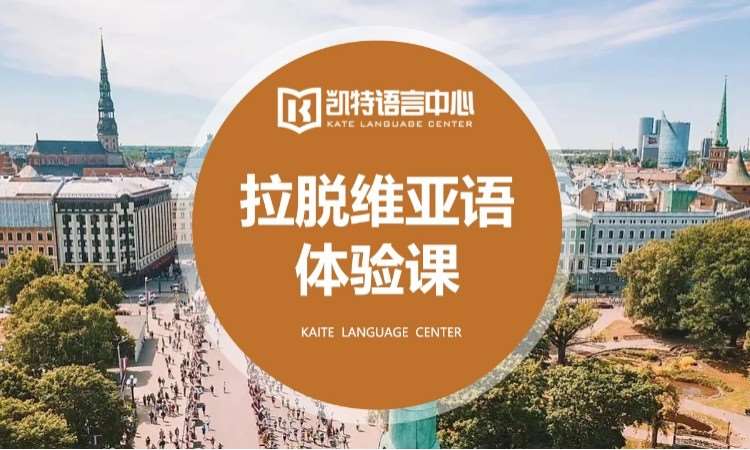笔译实务:拉加德理查德·汀伯比演讲
2015年01月30日
A New Multilateralism for the 21st Century: the Richard Dimbleby Lecture
21 世纪新的多边主义:理查德·汀伯比演讲
By Christine Lagarde
Managing Director, International Monetary Fund
国际货币基金组织总裁
克里斯蒂娜·拉加德
Good evening. It is a great honor to be invited to deliver this year’s Dimbleby Lecture, and I would like to thank the BBC and the Dimbleby family for so kindly inviting me—and especially David Dimbleby for his warm words of introduction.
各位晚上好。非常荣幸应邀做今年的汀伯比演讲,我要感谢英国广播公司和汀伯比一家的盛情邀请,还要特别感谢大卫·汀伯比热情的介绍辞。
This evening, I would like to talk about the future. Before looking ahead, however, I would like to look back—for the clues to the future can often be read from the tea leaves of the past.
今晚,我想谈谈未来。不过,在展望未来之前,我想回顾一下往昔——正所谓前事不忘,后事之师。
I invite you to cast your minds back to the early months of 1914, exactly a century ago. Much of the world had enjoyed long years of peace, and giant leaps in scientific and technological innovation had led to path-breaking advances in living standards and communications. There were few barriers to trade, travel, or the movement of capital. The future was full of potential.
请大家回忆一下整整一个世纪之前,1914 年初的情景。世界多数地方维持了多年的和平,科学和技术革新的飞跃带来了生活水平和通信能力的巨大提升。当时,贸易、旅行和资本流动的壁垒很少。前路充满了希望。
Yet, 1914 was the gateway to thirty years of disaster—marked by two world wars and the Great Depression. It was the year when everything started to go wrong. What happened?
但是,1914 年是之后三十年大灾难(两次世界大战和大萧条)的起始年。正是在这一年,一切事情都开始往错误的方向走去。到底发生了什么?
What happened was that the birth of the modern industrial society brought about massive dislocation. The world was rife with tension—rivalry between nations, upsetting the traditional balance of power, and inequality between the haves and have-nots, whether in the form of colonialism or the sunken prospects of the uneducated working classes.
当时,现代工业社会的诞生带来了大规模的社会错位。各种紧张关系此起彼伏——国家间的敌对打乱了传统的力量平衡,有产者与无产者的不平等(不论是体现在殖民主义的冲突,还是体现在未受教育劳动阶级的悲惨前途)愈发严重。
By 1914, these imbalances had toppled over into outright conflict. In the years to follow, nationalist and ideological thinking led to an unprecedented denigration of human dignity. Technology, instead of uplifting the human spirit, was deployed for destruction and terror. Early attempts at international cooperation, such as the League of Nations, fell flat. By the end of the Second World War, large parts of the world lay in ruins.
到了 1914 年,这些不平衡因素终于激化演变成了直接的战争。之后,民族主义者和意识形态之争造成了的人类尊严的堕落。科技不但没有提升人类精神,而且成为造成毁灭与恐惧的工具。国际合作方面的初步努力,如国联,也宣告失败。二战结束时,全世界很多地方成为了废墟。
I now invite you to consider a second turning point—1944. In the summer of that year, the eminent economist, John Maynard Keynes, and a delegation of British officials, embarked on a fateful journey across the Atlantic. The crossing was risky—the world was still at war and enemy ships still prowled the waters. Keynes himself was in poor health.
我还想请大家回忆一下另一个转折点——1944 年。是年夏天,著名的经济学家约翰?梅纳德?凯恩斯和英国官员代表团踏上了一次横跨大西洋的具有划时代意义的旅程。此次跨洋旅行是有风险的,当时的世界仍弥漫着战火的硝烟,海上仍有敌人的船舰。凯恩斯本人的健康状况也不佳。
But he had an appointment with destiny—and he was not going to miss it.
但是,这是一次与命运的风云际会,他不准备失约。
The destination was the small town of Bretton Woods in the hills of New Hampshire, in the northeastern United States. His purpose was to meet with his counterparts from other countries. Their plan was nothing less than the reconstruction of the global economic order.
此行的终点是美国东北部的新罕尔州的丘陵小镇布雷顿森林。他的目的是约见来自其他国家的同行。他们的计划是重建全球经济秩序。
The 44 nations gathering at Bretton Woods were determined to set a new course—based on mutual trust and cooperation, on the principle that peace and prosperity flow from the font of cooperation, on the belief that the broad global interest trumps narrow self-interest.
在布雷顿森林的 44 个国家决心在相互信任和合作的基础上,本着合作可以带来和平和繁荣的原则,以及全球利益胜过狭隘的自我利益的这一信念,开辟出一条新的道路。
This was the original multilateral moment—70 years ago. It gave birth to the United Nations, the World Bank, and the IMF—the institution that I am proud to lead.
这就是最初的多边时刻,发生在 70 年前。在这一伟大时刻诞生了联合国、世界银行和我们的基金组织——能成为这样一个机构的首脑令我无比自豪。
The world we inherited was forged by these visionary gentlemen—Lord Keynes and his generation. They raised the phoenix of peace and prosperity from the ashes of anguish and antagonism. We owe them a huge debt of gratitude.
我们继承的这个世界是由这些充满远见卓识的绅士——凯恩斯勋爵及其同代人建立的。正是他们,在痛苦和敌对的残垣断壁中唤起了和平与繁荣的凤凰的涅槃重生。对于他们,我们无比崇敬。
Because of their work, we have seen unprecedented economic and financial stability over the past seven decades. We have seen diseases eradicated, conflict diminished, child mortality reduced, life expectancy increased, and hundreds of millions lifted out of poverty.
正是他们的努力,在过去 70 年里,我们获得了的经济与金融稳定。一些疾病被根除、战争冲突逐渐减少、儿童死亡率降低、人均预期寿命延长、亿万人口摆脱了贫困。
Today, however, we are coming out of the Great Recession, the worst economic crisis—and the great test—of our generation. Thanks to their legacy of multilateralism—international cooperation—we did not slip into another Great Depression that would have brought misery across the world yet again. We all passed the test—rejecting protectionism, reaffirming cooperation.
然而,我们现今仍在努力走出大衰退,这个我们这代人所经历的*严重经济危机和所面对的*艰巨挑战。由于多边主义的历史传承,即国际合作,我们躲开了另一场大萧条,从而使世界避免了又一次的浩劫。我们禁受住了这次考验,没有因为挫折而倒向保护主义,再次坚定了合作的意志。
Yet there will be many more tests ahead. We are living through a time every bit as momentous as that faced by our forefathers a century ago. Once again, the global economy is changing beyond recognition, as we move from the industrial age to the hyperconnected digital age.
但是,未来还有更多的考验。我们所经历的时代,其重要性丝毫不亚于我们的先辈在一个世纪前的所在时代。全球经济又一次出现了我们始料未及的变化,我们正在从工业时代走向超级联结的数字时代。
Once again, we will be defined by how we respond to these changes.
历史又走到了这样一种时刻:我们的是非功过,取决于我们对这些变化的处理方式。
As we look ahead toward mid-century, toward the world that our children and grandchildren will inherit from us, we need to ask the question: what kind of world do we want that to be—and how can we achieve it?
在展望本世纪中叶,畅想我们的孩子和孙子从我们手里继承的世界时,我们要问自己
的问题是:我们希望那时有一个什么样的世界,怎样才能实现这样的世界?
As Shakespeare says in Julius Caesar: “On such a full sea are we now afloat, and we must take the current when it serves, or lose our ventures.”
正如莎士比亚在《凯撒大帝》中所说的:“人间大小事,有其潮汐;把握涨潮,则万事无阻;错过了,一生的航程,就困于浅滩与苦楚。”
This evening, I would like to talk about two broad currents that will dominate the coming decades—increasing tensions in global interconnections and in economic sustainability. I would then like to make a proposal that builds on the past and is fit for the future: a strengthened framework for international cooperation.
今晚,我想谈谈将主导未来几十年的两大涌流——即不断加剧的全球互联性紧张关系以及全球经济持续发展紧张关系然后,我会借鉴以往的经验教训提出一个着眼未来的解决方案:一个加固的国际合作框架。
In short, a new multilateralism for the 21st century.
简言之,是 21 世纪新的多边主义。
Tensions in global interconnections
全球互联性的紧张关系
I will start with the first major current—tensions in global interconnections, between a world that is simultaneously coming closer together and drifting further apart.
首先,我要说的是第*大涌流,全球互联性的紧张关系,即,世界日益紧密的趋势与渐行渐远趋势之间的矛盾。
By “coming together”, I mean the breakneck pattern of integration and interconnectedness that defines our time. It is really the modern counterpart of what our ancestors went through in the fateful years leading up to 1914.
所谓“日益紧密”,是指我们这个时代迥异于其他时期的鲜明的一体化和相互联结的特征。实际上,这也正是我们的先辈在 1914 年之前的时代所经历的世界大格局的现代版本。
Just look at the great linking of the global economy over the past few decades.
的确,全球经济在过去几十年的高度相联就是明证。
For one thing, world trade has grown exponentially. We are now in a world of integrated supply chains, where more than half of total manufactured imports, and more than 70 percent of total service imports, are intermediate goods or services. A typical manufacturing company today uses inputs from more than 35 different contractors across the world.
例如,世界贸易呈现指数级增长。目前世界的供应链高度一体化,其中制造品进口的一半以上及服务总进口的 70%是中间产品或中间服务。目前,一个典型的制造企业用的投入品来自世界各地 35 个以上的不同承包商。
Financial links between countries have also grown sharply. In the two decades before the crisis in 2008, international bank lending—as a share of world GDP—rose by 250 percent. And we should expect this to rise further in the future, as more and more countries dive into the financial nexus of the global economy.
国家之间的金融联系也急剧上升。在 2008 年金融危机发生前的二十年里,国际银行贷款占 GDP 的比例提高了 250%。随着更多国家加入全球经济的金融链条,此比例还会上升。
We are also living through a communications revolution. It has produced a starburst of interconnections, with information traveling at lightning speed from limitless points of origin. The world has become a hum of interconnected voices and a hive of interlinked lives.
我们还在经历一场通信革命。由于信息可以从无限的起始点以闪电般的速度传输,信息革命产生了互连星爆。世界成为了一种各种声音互相关联的发声体,成为了一种人们生活相互关联的组织体。
Today, 3 billion people are connected to each other on the internet. Three million emails are sent each second. There are almost as many mobile devices as people on the planet, and the “mobile mindset” is deeply embedded in all regions of the world. In fact, the highest rates of mobile penetration are in Africa and Asia.
今天,有三十亿人口通过互联网联系。每一秒有三百万封电子邮件被发送。移动设备数与地球上的人口数几乎相同,“移动观念”深深植根于世界所有地区。事实上,非洲和亚洲的移动电话普及率是*高的。
Back in 1953, when people tuned into the coronation of Queen Elizabeth II, their experience was mediated essentially by one voice—the masterful Richard Dimbleby, whom we honor today. In contrast, when Prince George arrived last summer, his birth was heralded by more than 25,000 tweets a minute!
早在 1953 年,当人们收听英国女王伊丽莎白二世加冕礼时,信息基本上由一个声音在传播,即今天我们纪念的理查德?汀伯比大师。与此相比,当乔治王子去年夏天出生时,每分钟会发出 25,000 多个相关推文!
With such a dizzying pace of change, we can sympathize with Violet Crawley, Downton Abbey’s countess, who wondered whether the telephone was “an instrument of communication or torture!”
这样的变化速度令人目不暇接,我们终于可以理解当年的维奥莱特?克劳利(《唐顿庄园》中古怪的太伯爵夫人)的话了——她疑惑电话到底是“沟通工具,还是刑具”。
This brave new world—this hyperconnected world—offers immense hope and promise.
这个勇敢的新世界,这个超级互联的世界,给我们提供了无限的希望和机遇。
Stronger trade and financial connections can bring tangible benefits to millions of people—through higher growth and greater convergence of living standards. The dream of eliminating extreme poverty is within our reach.
强劲的贸易和金融联系可以给很多人带来好处,如增长提高、生活水平加快趋同步伐。实现消除极端贫困的梦想也因此真正有机会实现。
The communications revolution too can be a potent force for good. It can empower people, unleash creativity, and spur change. Think about how twitter messages helped to galvanize the participants in the Arab Spring, or how social media carrying the message of Malala in Pakistan pricked the conscience of the entire world.
通信革命也能成为一股强大的正面力量。它可以给予人们力量,发挥创造力,推动变革。回想一下推特信息如何帮助激励了阿拉伯之春的参与者,报道巴基斯坦少女马拉拉故事的社交媒体如何唤起了全世界的良知。
It is not all bright skies, however. When linkages are deep and dense, they become hard to disentangle. In such an interwoven labyrinth, even the tiniest tensions can be amplified, echoing and reverberating across the world—often in an instant, often with unpredictable twists and turns. The channels that bring convergence can also bring contagion.
然而,金无足赤,凡事皆有弊。当联系非常紧密时,它们变得难以分解。在这种复杂交织的迷宫里,即使是*微小的紧张关系都可能被放大,在世界各地产生回响,而且这种情况往往在瞬间发生,经常会导致不可预知的变数。产生趋同效应的渠道同样也能导致传染效应。
Because of this, the global economy can become even more prone to instability. If not managed well, financial integration can make crises more frequent and more damaging. Consider, for example, where and how the recent global financial crisis began—in the mortgage markets of suburban America—and spread all around the world.
正因为如此,全球经济会更易于陷入不稳定。如果管理不善,金融一体化可能导致危机发生更加频繁,并更具破坏性。举个例子,此次全球金融危机竟然是从美国郊区的抵押贷款市场开始,一直蔓延到全世界。
The communications revolution too has a dark side. It can sow discord, instill factionalism, and spread confusion. Instead of an online forum for ideas and expression, we could have a virtual mob or a global platform to promote intolerance or hatred. Instead of a beautiful symphony, we could have an ugly cacophony.
通信革命也有不好的一面。它可以引发争论、灌输宗派主义和传播混乱。它可能成为一个网络暴民聚集地或一个加剧偏狭或仇恨的全球平台,而不是一个让人们表达思想和想法的在线论坛。我们听到的可能是丑陋的杂音,而不是优美的交响曲。
So the key challenge for us in all this will be to magnify the good and diminish the bad.
因此,我们面临的重大挑战是发扬好的一面,减少坏的一面。
If managing the great “coming together” were not difficult enough, it will be further complicated by the other current that I mentioned: the tendency for the world to grow further apart, even as it draws closer together.
管理这种宏大规模的“日益紧密”进程本身就已十分困难,但我前面提到的另一股涌流让其更加复杂:即世界虽然日益紧密,但同时也渐行渐远。
This is a paradox. What do I mean? I mean the diffusion of power across the world—toward more diverse geographical regions and more diverse global stakeholders. Unlike with integration, our forefathers experienced nothing like this. It is a defining feature of our hyperconnected age.
这是一个悖论。这是什么意思呢?我的意思是,力量在整个世界越发扩散,分散到更多的地理区域和更多的全球利益相关者。与一体化的潮流不一样的是,这个新趋势也是我们的先辈所未曾遭遇的。它是我们这个超级联结时代的迥异特征。
One of the major megatrends of our time is the shift in global power from west to east, and from north to south—from a few to a handful, to a myriad.
我们这个时代的主要大趋势是全球权力正在从西方转向东方,从北方转向南方——从少数人到大群人,进而到亿兆民众。
Fifty years ago, the emerging markets and developing economies accounted for about a quarter of world GDP. Today, it is half, and rising rapidly—very likely to two-thirds within the next decade.
五十年前,新兴市场和发展中经济体约占全球 GDP 的四分之一,如今占到一半,且其比重还在迅速上升,很可能在下一个十年占到全球 GDP 的三分之二。
The diffusion of power also goes beyond country relationships, extending to a whole host of networks and institutions that inhabit the fabric of global society.
权力的扩散还超越了国家关系,扩展到全球社会结构中的一系列网络和机构。
Think about the rising nexus of non-government organizations, which can use the communications revolution to extend their reach and amplify the voice of civil society. In just 20 years, the number of these groups associated with the United Nations rose from 700 to nearly 4000.
想一想非政府组织网络的崛起,它们可以利用通讯革命扩大影响范围,提高民间社会的声音。在短短的 20 年时间里,与联合国有联系的这些团体数目从 700 个上升到近4000 个。
Think about the growing power of multinational corporations, who now control two-thirds of world trade. According to some research, 12 multinational corporations now sit among the world’s top 100 economic bodies in terms of sheer size.
想想跨国公司不断提高的实力,它们现在控制着世界贸易的三分之二。一些研究认为,就规模而言,目前世界排名前 100 位的经济实体中有 12 家是跨国公司。
Think about powerful cities—31 of them are also on that list of the top 100. And they continue to grow. By 2030, about 60 percent of the world’s population will live in cities.
还有那些大城市,有 31 个也在 100 强的名单上。它们在继续扩张。到 2030 年,世界人口的约 60%将居住在城市。
Think also about the rising aspirations of citizens who feel increasingly part, yet not quite adjusted to, our interconnected “global village”. By 2030, the global middle class could top 5 billion, up from 2 billion today. These people will inevitably demand higher living standards, as well as greater freedom, dignity, and justice. Why should they settle for less?
人们越来越感觉到自己成为相互联系的“地球村”的一部分,但却没有完全适应。到2030 年,全球中产阶级将达到 50 亿,今天是 20 亿。这些人们将必然要求更高的生活水平、更大程度的自由、尊严和公平。他们有什么理由要退而求其次呢?
This will be a more diverse world of increasing demands and more dispersed power.
世界将会更加多元化,需求将增加,权力将更加分散。
In such a world, it could be much harder to get things done, to reach consensus on issues of global importance.
在这样的世界中,要把事情做成很难,就全球重大问题达成共识更难。
The risk is of a world that is more integrated—economically, financially, and technologically—but more fragmented in terms of power, influence, and decision-making. This can lead to more indecision, impasse, and insecurity—the temptations of extremism—and it requires new solutions.
我们的风险在于,这是一个在经济、金融和科技方面更加一体化的世界,但同时,这也是一个在权力、影响力和决策方面更加分散的世界。这会导致更多的决断困难、僵局和不安定——如极端主义的倾向——因此也需要用新的方法予以解决。
Tensions in economic sustainability
经济持续发展的紧张关系
We will also need solutions for the second broad current that will dominate the next few decades—tensions in economic sustainability, between staying strong and slowing down.
我们还需妥善处理主导未来几十年经济持续发展的第二大涌流——经济持续发展的紧张关系,即,经济强劲增长和减缓之间的紧张关系。




